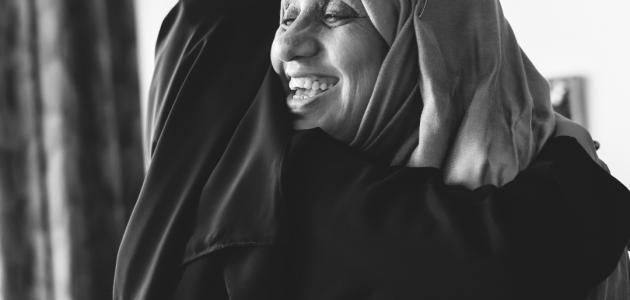Definition of rights
The word “right” is defined linguistically in several ways. Right is stability, correctness of speech, and truthfulness. The Almighty’s saying: (To warn whoever is alive, and to confirm the word against the disbelievers) indicates that meaning, and when saying: It is permissible for you to do such-and-such, this indicates It is obligatory to do that thing. The word “you have the right” here means “must,” but when you say “you have the right to do such and such,” this indicates the permissibility of doing that thing. The word “you have the right” here means “justified,” “permissible,” or “permissible.” Rights are defined idiomatically as basic and normative rules that are established in accordance with Social customs, prevailing moral theories in society, or its legal system, which clarify the actions permitted for people or deserving people, are, in other words, social, moral, or legal principles of entitlement or obtaining freedom.
The importance of rights
Many specializations are rights-based; Such as ethics, law, and especially theories of justice and ethics, they represent great importance for these disciplines, and they can also be considered the foundation of civilizations, as they are one of the solid pillars of any society and its culture, as each of the rights throughout history witnessed social conflicts until it developed, and according to the Stanford Encyclopedia of Philosophy ( In English: Stanford Encyclopedia of Philosophy), rights are what shape governments, the content of laws, and indicate the form of morality.
Types of rights
There are three types of rights, which are as follows:
Read also:Reasons for marital disputes- Natural rights: Natural Rights represent the rights that a person acquires by inheritance, and they are parts of human nature and the human mind. Any individual who enters society has some basic rights that no government can deny, such as the right to life, the right to property, and the right to freedom. .
- Moral rights: (In English: Moral Rights), they represent the rights that a person acquires through human awareness, and are supported by moral force, and are based on the human endeavor to achieve righteousness and justice. The law has no role in those rights, and the state cannot impose them on individuals, and if they do not If an individual implements these rights, no legal action will be taken against him, and they include: Rules of good behavior, courtesy, and ethical behavior, examples of which include the right to paternity and the right to integrity.
- Legal rights: (In English: Legal Rights), they represent the rights that the state accepts and applies, so they are imposed on individuals through the legal courts, and any violation of any legal right is punished by the law, and thus they differ from moral rights, and they can be applied against the government and against individuals as well. It is available to all individuals, and at the same time they all follow legal rights without any discrimination. Any individual can resort to the courts to enforce his legal rights. Legal rights include three types: Civil rights, political rights, and economic rights.
Definition of duty
Duty (in English: Duty) is defined in the language as necessary, so saying something is obligatory means: obligatory and proven. Technically, it is defined as anything that an individual is asked to do or is expected to do out of moral or legal obligation, and it can be defined as behavior. Or the performance that results from holding a specific position or position, or because of an explicit or implicit legislative contract. Ethicists have divided the duty according to several divisions, which are as follows:
Read also:He who breaks the ties of kinship does not enter Paradise- Personal duties: Refers to a person's duties towards himself, such as politeness and cleanliness.
- Social duties: It refers to the duties imposed on a person towards his society, such as benevolence and justice.
- Divine duties: It refers to obedience to God and performing acts of worship.
In the previous division, any duty can be classified into all sections according to the person’s point of view. For example, cleanliness is classified as a personal duty, but if it is looked at from another point of view, such as the effect of cleanliness on the state of society as a whole, it can be classified as a social duty, and it can also be classified as... It is a divine duty if it is viewed as an implementation of a divine command. Therefore, other scholars created another classification, where they divided the duty into two parts, namely:
- Limited duties: These duties are placed in the law of the nation, and penalties can be applied to the individual who violates them. They are assigned to all individuals in society equally without discrimination, and both law and morality participate in their application. Examples include: avoiding theft and avoiding murder.
- Unlimited duties: It is not possible to place these duties in the law of the nation, as placing them within the law of the nation may cause great harm to society and individuals, and it is also difficult to determine the amount that must be applied of them. For example, the amount that must be applied for the duty of charity varies according to the time, place, and circumstances surrounding the individual.
The first division of duties includes the basic things necessary for the continued survival of society, as neglecting them leads to the destruction of society. As for the second division, it includes the duties necessary to achieve the well-being and progress of society. Therefore, it was considered that the second division is superior to the first division and is of higher importance than it. In the first division, the law is responsible. For its implementation, as for the second, the conscience is responsible for it, and an example of this is justice and benevolence. Justice is classified within the first type and on it the survival of society depends. As for benevolence, it is within the second type and cannot be reached unless justice is obtained, as justice represents the pillar and benevolence is built on top of it. .
Read also:Ideas for bride giftsThe basis of right and duty
Social living is the basis of rights and duties, and it can be considered that the close connection and interdependence between the individual and his society is the basis of the idea of right and duty. Assuming that there is no connection between the individual and society and that the individual lives alone, there is no meaning of right or duty, as the individual can do any of the actions without A restriction or condition deters him, but his presence within a society to which he belongs obliges him to perform many actions to preserve it. Failure to adhere to these actions exposes society to the risk of deterioration and annihilation, and from here the idea of right and duty arose. An example of this is the preservation of money and lives, which are called individual rights. The first rank, and whoever violates it is punished in order to preserve the society from extinction. There are also many things that are considered a reason for the well-being and perfection of society, such as the right to education, and they have been considered individual rights in the second rank, and they are required to be carried out to a lesser degree than the rights belonging to the first ranks.
Rights refer to the things that other individuals are intended to do toward the individual, while duties refer to the things that the individual is intended to do toward others. Therefore, the right comes with respect for the rights of others and a commitment to that respect, as the obligations accompanying rights are in fact duties, and rights become meaningful if Individuals carry out their duties, and each of them contributes to facilitating and facilitating life if rights and duties go side by side so that they complement each other. For example, every individual has the right to enjoy public facilities. Such as transportation or health services, and at the same time it is his duty to preserve them and allow others to benefit from them. Another example is that every individual has the right to exercise freedom, but at the same time it is his duty not to abuse those freedoms in order to harm others.









